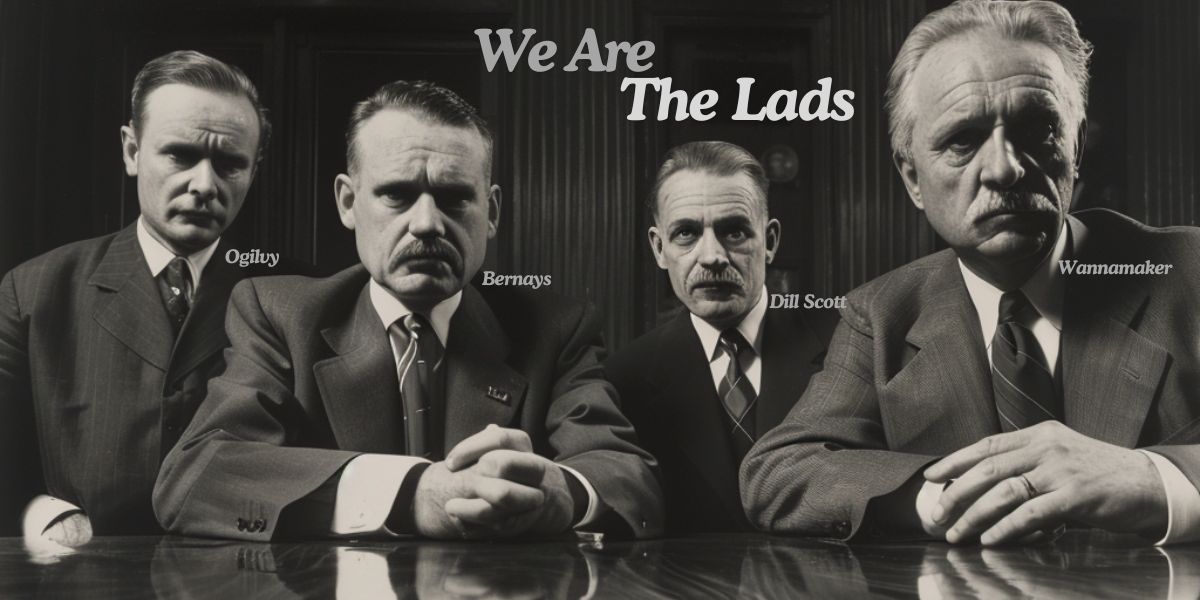Who Invented Marketing?
Marketing, in its modern form, has evolved over centuries and doesn’t have a single inventor. Instead, it has been shaped by various individuals, ideas, and historical developments over time.
The concept of marketing can be traced back to ancient civilizations where trade and barter systems existed. However, modern marketing as we know it today began to take shape during the Industrial Revolution in the 18th and 19th centuries.
Note:
This article features content from the Marketing Made Clear podcast. You can listen along to this episode on Spotify below:
Historical Evolution of Marketing
In ancient times, marketing activities were primarily centered around trade and barter. People exchanged goods and services, and the value of these exchanges was often determined through negotiation and social agreements. As civilizations grew, so did the complexity of marketing activities.
The Industrial Revolution marked a significant turning point. Mass production, technological advancements, and the rise of consumer markets led to the development of marketing strategies that could address the needs of a broader audience. During this period, advertising, branding, and sales techniques started to become more sophisticated.
Key Figures in Marketing History
One of the key figures in the early development of modern marketing is Philip Kotler, often referred to as the “Father of Marketing.” Yes, I’m talking about Kotler again, but for good reason! His contributions have helped shape modern marketing theories and practices, making him a pivotal figure in the discipline.
However, Kotler is not the only pioneer in marketing. Several other individuals have made substantial contributions to the field:
- Walter Dill Scott: Known for his work in applied psychology to advertising and marketing.
- John Wanamaker: A pioneering retailer who is often credited with the famous quote, “Half the money I spend on advertising is wasted; the trouble is I don’t know which half.”
- Edward Bernays: Often referred to as the “Father of Public Relations,” Bernays applied psychological principles to shape public opinion and behavior, profoundly impacting marketing strategies.
- David Ogilvy: An influential figure in the advertising industry, Ogilvy emphasized the importance of research and consumer insights in advertising campaigns.

Walter Dill Scott, John Wannamaker, Edward Bernays and David Ogilvy
Modern Influences on Marketing
Marketing is a continuously evolving discipline, shaped by contributions from numerous individuals, theories, and practices throughout history. In recent times, figures such as Steve Jobs (Apple), and Jeff Bezos (Amazon) have all had a significant impact on marketing in their own ways. A little further back, psychologists like Sigmund Freud and Abraham Maslow spearheaded seminal research that provided us with insights into human behaviour that permeated into marketing, enriching the field.
The evolution of marketing is a testament to the dynamic interplay between theory and practice. Whether through groundbreaking theories or innovative business practices, marketing continues to adapt and grow, reflecting the changing needs and preferences of society.
Looking Ahead
The history of marketing is a vast and complex subject, and its future will likely be shaped by ongoing technological advancements and shifts in consumer behavior. As we move forward, it will be fascinating to see how new ideas and pioneers will continue to influence and redefine the field of marketing.
I have no doubt that human behaviours will evolve in line with technology. At the time of publishing this article, AI is seemingly the biggest factor for change and I am sure this will open the door to opportunities that we can currently only dream of!
Up Next:
What’s the difference between the field of marketing thought and marketing practice?


